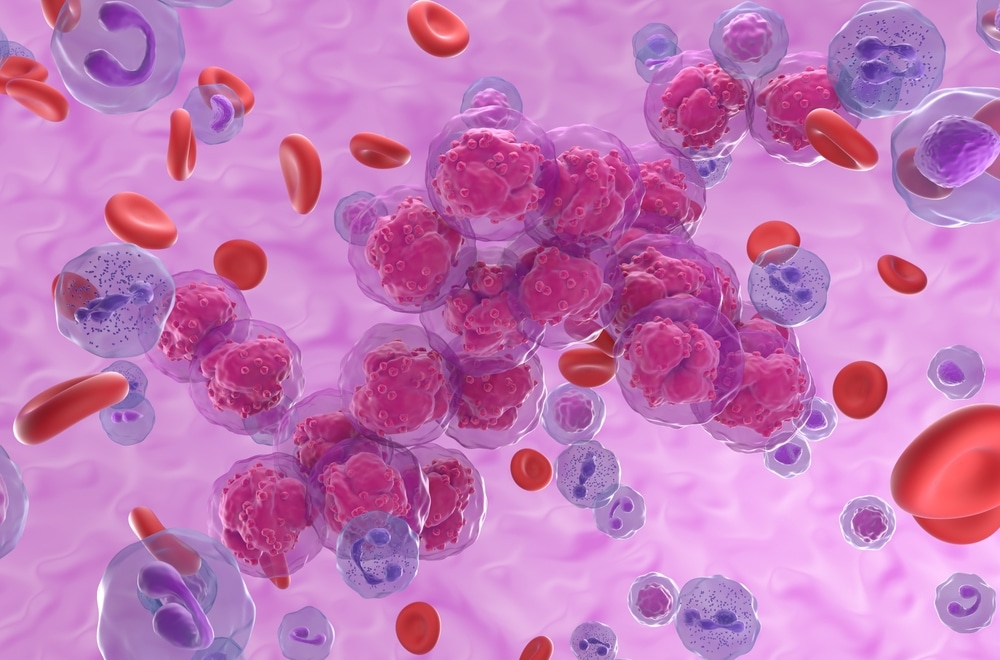Life sciences company Mission Bio, Inc. has announced the availability of the industry’s first assay capable of determining measurable residual disease (MRD) in cancer down to the level of individual cells.
Mission Bio said this heralds a new era for the understanding of disease progression.
The single-cell multi-omics MRD (scMRD) assay for acute myeloid leukemia (AML) improves on both the sensitivity and specificity of commercial MRD tests used today both in research and to predict cancer recurrence in patients, leveraging the Tapestri Platform’s ability to measure DNA and surface protein expression (or immunophenotype) data from the same cells.
Through Mission Bio’s new Early Access Program, pharma and academic partners can perform proof-of-principle studies that broaden understanding of the residual cancer cells that escape treatment for AML by spotlighting the ones other tests miss.
Currently, MRD is measured by physicians to help guide future therapy decisions and, potentially, prevent relapse in patients with AML and other cancers. However, these assays are limited to one type of measurement at a time, like flow cytometry for immunophenotyping or bulk sequencing for mutation detection.
Both have limitations – certain cancer cells alter their immunophenotype in response to therapy, potentially giving a false MRD-negative result, while some rare but aggressive leukemia cells may acquire additional mutations that go undetected by bulk sequencing.
Recent research also suggests combining both methods to measure immunophenotype and genotype information for the detection of residual disease added significant prognostic value over one method alone.
“We need to move beyond simple detection of MRD and be able to characterize the architecture of persisting disease,” said Aaron Llanso, senior director of clinical applications at Mission Bio.
“For the first time, we’re enabling researchers to gain clonal insight in tandem with cell-surface protein markers from rare residual disease cells at the time of remission.”
The company said the key to enabling these insights is the Tapestri Platform’s integrated genotype and immunophenotype capability, powering an industry-first MRD assay that yields single-cell multi-omic insights into disease evolution, therapy resistance, and transplant chimerism.
Future of precision medicine
“AML is a devastating disease that is adept at finding ways to develop resistance to known treatments,” said Todd Druley, chief medical officer of Mission Bio.
“We believe the future of precision medicine will rely on single-cell multi-analyte profiles that can more powerfully inform bespoke clinical practice.”
Through the Early Access Program, using fresh or cryopreserved bone marrow aspirate, academic researchers will be able to conduct proof-of-concept studies in their own labs using the Tapestri Platform, while biopharma customers will be able to leverage Mission Bio’s Pharma Assay Development Services for initial pilot studies.
These findings will have near-term implications for patient stratification in clinical trials and patient care, impacting disease surveillance, therapeutic selection, and patient outcomes.
Early data from collaborators at Memorial Sloan Kettering Cancer Center will be presented at the Tapestri Single-cell Multi-omics MRD (scMRD) for AML Summit to be held in New York on August 16. The company plans its full commercial launch for single-cell measurable residual disease detection for AML in early 2023.
About Tapestri
The company’s Tapestri platform gives researchers around the globe the power to interrogate every molecule in a cell together, providing a comprehensive understanding of activity from a single sample.
Tapestri is the only commercialized multi-omics platform capable of analyzing DNA and protein simultaneously from the same sample at single-cell resolution. The Tapestri Platform is being utilized by customers at research centers, pharmaceutical, and diagnostics companies worldwide to develop treatments and eventually cures for cancer.





